WHAT IS SMART FACTORY?
Highly digitizalized, connected and communicated each other via the Internet of Things of things and internet of services. Smart factory uses connected devices, machinery and production systems to continuously collect and share data. This data is then used to inform decisions to improve processes as well as address any issues that may arise. The smart manufacturing practices used by a smart factory are enabled by a variety of technologies including artificial intelligence (AI), big data analytics, cloud computing, and the industrial Internet of Things (IoT).
Smart factory provides:
- Informed decisions at every step
- Spotting defects in the production line
- Cost-effective solution
- Future rewards
- Accelerating business automation
- Enhancing customer experience
- Enabling deeper visibility and insightful decision-making
Why Smart factory?
1. Faster Production:
Makes products more readily available
2. Better Quality:
Top 100 European manufacturers could save an estimated €160 billion in the costs of scrapping or reworking defective products if they could eliminate all defects
3. Increased Productivity:
Lower operating costs and more streamlined processes
4. Improved Decision-Making:
Decision makers can predict, respond, and adapt to factory needs and market trends
The benefits of AI in Smart factories are:
Performance enhancement, cost control, optimization of processes, shortened product cycle development times, and improved efficiency.
How AI is embracing smart factories?
With the help of AI, all factory employees can get the most up-to-date analytics information in real-time to adjust production time frames or schedule equipment maintenance accordingly.
Also, AI provides employees mobility, and more of the information they need when they need it, which empowers them to get more done in a shorter amount of time.
AI helps ease the workload, reduce time-wasting actions, and amplify productivity.
How Smart factories helping Businesses?
Smart factories can help a business become much more efficient with its resources, enhance worker safety, and facilitate worker training. For example, during covid-19 time, most of smart factories could do

better, because they had the agility to introduce a new product into their manufacturing environment very quickly and retool, retrain, and execute in a very rapid fashion.
How Smart factories Impact on Sustainability?
Smart factories inherently promote efficient resource use. Simulation software, for instance, can drastically reduce the amount of physical waste by moving many physical tests (such as vehicular crash tests) into simulated environments. Simulation can also predict the durability and lifespan of different materials and test alternate materials for end products with the lowest impact on the planet.
With the right intention, smart factories can actively support sustainability goals.
Smart Factory technology will have global market size of 789.80 Billion USD by 2025
For further assistance, visit our channel and refer the video named How AI Influences in Smart Factories | Quality Inspection | AI project + Industry 4.0 Analysis or click the link.



Thanks for sharing. I read many of your blog posts, cool, your blog is very good.
Thank you, your article surprised me, there is such an excellent point of view. Thank you for sharing, I learned a lot.
Thanks for sharing. I read many of your blog posts, cool, your blog is very good.